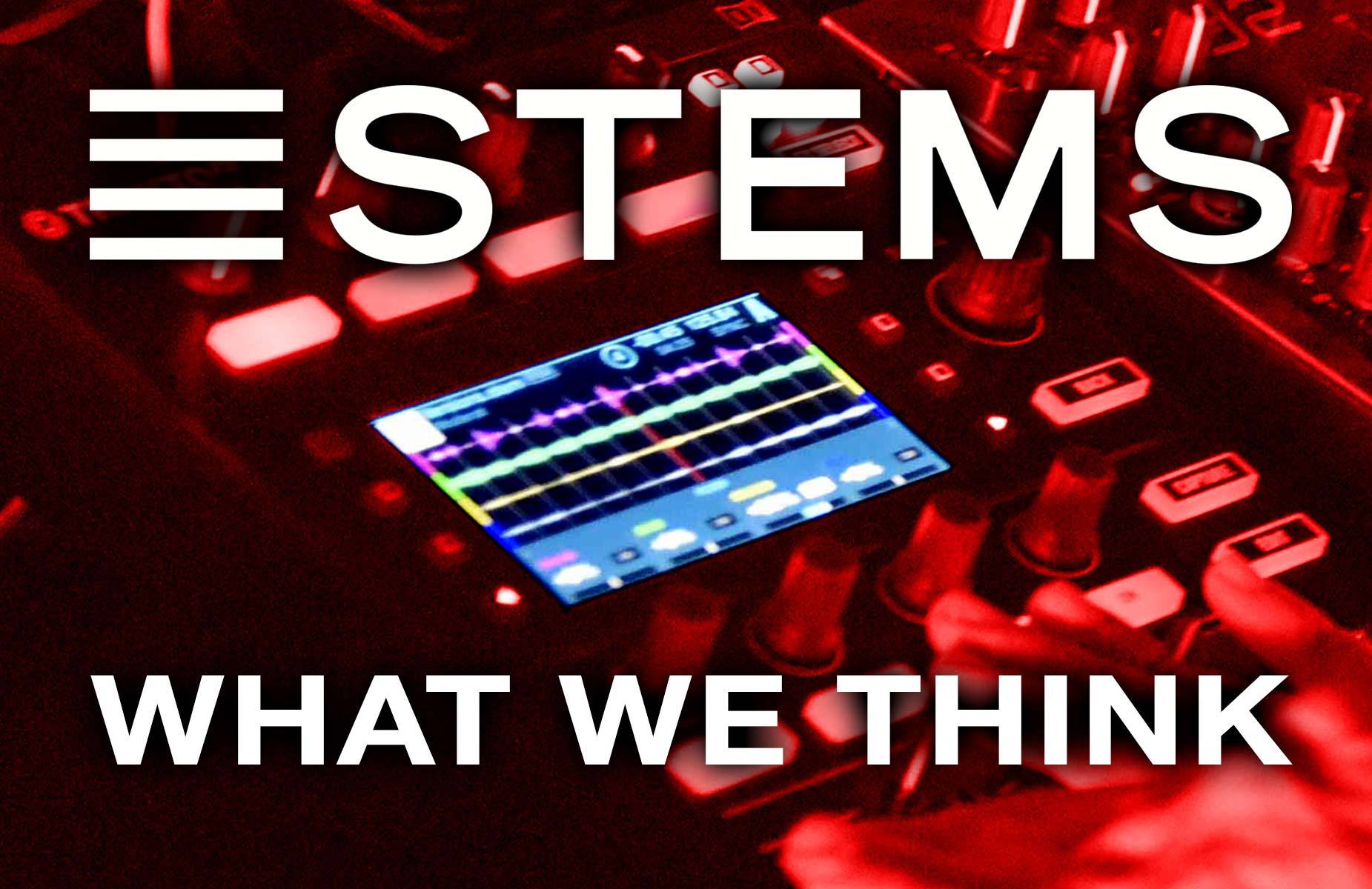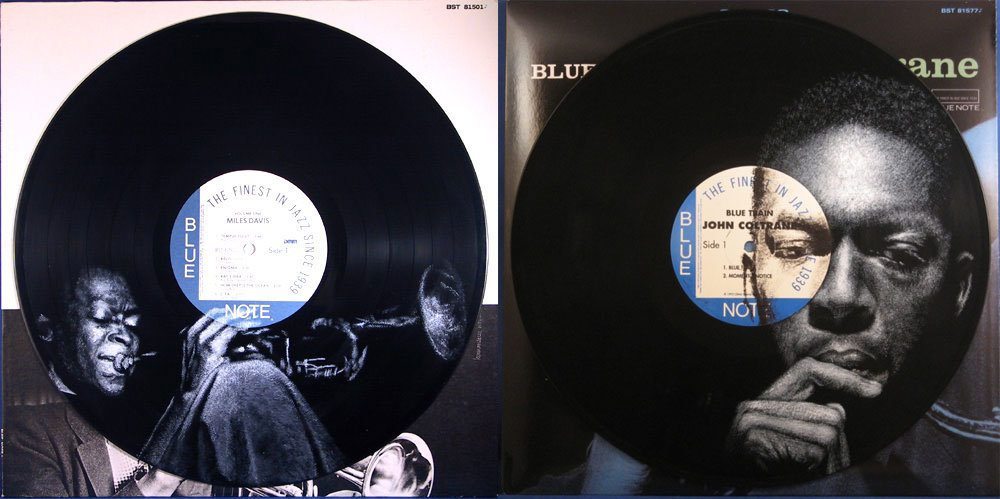Just announced, NI has created Stems, a multi-track audio format for DJs. A quick scout around the usual online sources has revealed a mixture of future-looking positivity as well as a surprising level of anti-stems sentiment. I shouldn’t be surprised as people general exhibit this when face with something new and potentially revolutionary. So opening this up to the DJWORX massive, read on for varied opinions on Stems. I present the DJWORX Stems Teamtalk.
Jared’s Thoughts
Finally, after all of these months, we see the beginning of what Native Instruments sees as the future of DJing. The S8 and the D2 are simply products which expand on where we are now, and do very little to move anything forward. That’s not a critique of those products, since I personally love my S8, but an acknowledgement of where we are in a technological sense as DJs. Hopefully Traktor Pro 3 becomes part of their discussion of the future soon, since I think all of us who use Traktor Pro 2 are losing our patience.
So moving on, Native Instruments has announced a file format that makes their whole remix deck thing make sense. You have one file, a complete audio file, that can be hot swapped in your software, and you can interact with individual pieces of that song. That’s great. I think we can all see right now whether or not we would use that. I can say, for one, I’d love to but I’m aware that the vast majority of artists I spin won’t go anywhere near it for years. We always get places last, it seems.
But the real story, regardless of whether you use it or not, is that it’s open source. NI isn’t licensing it, they aren’t selling it, they aren’t making any profit off of anyone using it. They are releasing it to the internet for everyone to use, modify, control, monetize and sell. That’s huge. Maybe it’s a step forward for NI, for them getting away from this reputation of being a locked down, controlled environment. They’ve created something new, interesting and, for some, exciting and are giving it away for free. That’s not something to scoff at.
Will DJs use it? I think if the artists that utilize the format do so correctly, whatever that means, there could be a lot of adoption. Every song you purchase would come with a fully controllable a capella. You could have the drums and rhythm section pulled out instantly, and you could interact with it in your DJ software independently of the other features. If you watched the live stream, there are moments where you can see the Uner interacting with two pieces of a song, and then slowly introducing a third part, and dropping a loop on them, out of order from the original layout. It looked easy and intuitive, and that’s a future I’d love to see more from Native Instruments. But beyond that, with them releasing this in an open source, no one is left out. You use Serato DJ? Well, Serato can implement this file format, and allow you to use it in their software. So can Atomix in Virtual DJ. And Cross, and Mixxx, and Pioneer into Rekordbox. I mean, we can all win. And Native Instruments made it possible.
I’m not saying this is going to be something everyone will want. I mean, there are still DJs who we hear from often complaining that there are computers involved with DJing at all because reasons. And this file format will not get instant adoption. But Beatport and Juno are involved, I’m sure NI has spoken to Apple already, and electronica labels will definitely be taking them up on this. But it’s not just for EDM. Craze is involved, and he’s a turntablist through and through. He sees this as a way for any DJ, any user, to have access to instrumentals and a capellas. We all win with this, and instead of it being locked in some proprietary format, we can all access it.
This is a future I’m excited for.
Mark’s Take
About bloody time if you ask me. As an old schooler, we tended to play tracks pretty much end to end — none of this looping and hot cue luxury that you kids get to play with. But the one thing that we were always looking for where isolated beats, basslines, and especially vocals — not to play in isolation, but to mix under other tracks. And thankfully, NI has made this happen, and not just for them but for everyone.
The possibilities are crazy. All I can imagine is having four classic house tracks loaded and synced, and having the ability to mix in and out of any particular elements I wanted. This is a whole new level of (re?)mixing for DJs — it really is a game changer, something I don’t say lightly. Soundcloud is about to groan under the weight of bad mashups for a little while.
Looking at an S8, those remix deck controls that not too many people made use of suddenly become volume faders, filters and maybe even hot cue buttons per track. The S8 begins to be more mixing desk than controller, and the potential for a total shift in controller design is clear. But we’ll probably see a heap of add-ons first.
NI is doing something quite revolutionary in the DJ industry. Instead of creating something closed and proprietary, they’ve flung open the doors — wide open, without a clear way of making money directly from it. Maybe it’s a way of moving DJing into a new direction that will require more hardware purchases. Or maybe they’ve seen the error of their closed ecosystem ways and are just doing something very cool for all DJs. Perhaps we’ll remember today as the day that NI changed DJing. Or maybe just made it more complex — time will tell.
So you can begin to see that NI hasn’t been quiet, and it’s a very long way from over. They were absolutely correct when they were on about the #futureofdjing being live remixing. Not the remix decks with their constructions set nature, but mixing stems has universal appeal. It’s just a shame it’s taken so bloody long to get to this point. Welcome to the future.
Dan’s thoughts
The idea of a multitrack music file has been an ongoing discussion for a long time. Whilst it seems an obvious next step for mixing tunes, it’s taken until now for it to finally become a reality. It’s hard to argue that there isn’t infinite possibility to these new Stem files, but is it a revolution or just simply evolution?
For me as a Traktor (and remix deck) user, this is the announcement that takes remix decks to the masses. Having an open standard backed by Dance Music heavy hitters certainly gives it weight. The biggest news though, is the change in philosophy for Native Instruments. I’m hoping this is a sign that they are putting their isolationist stance behind them. That they realise that no matter how great their kit is, they need friends out there to get people using their stuff. Making good products just isn’t enough in a connected world.
But it makes you wonder. There are so many ‘What Ifs’. What if the next version of Traktor allowed you to pay a fee to unlock Scratch for any capable audio interface or mixer? There’s really no technical reason why not. Hell, they could charge a hundred quid and it would still be attractive to many people!
Back to the story… really, apart from getting Traktor to understand the new multitrack files, all NI need to do is remove the limit on how long a clip can be to get this working. As a user, you’d be able to create new loops and sample them to further remix deck slots in some sort of infinite loop-ception. As great as this news is, being a Techno DJ, the thing I really, really want to see in Traktor is some sort of basic step sequencer. Give me the ability to create texturing loops of claps, toms, vocals or whatever is in my remix deck on the fly, and I’ll be a happy man.
Still, this is another, further step for NI in blurring the lines between DJing and production. It makes you wonder, with Native having distinctive products in both categories, how much more are they planning?
Ray’s take
While going over some screen shots Jared took during NI’s live streaming session, we pretty much immediately nailed this based on the image that showed one track loaded with four lanes visible on the screen. What we didn’t know is the open-source nature of this new format, and this is where I get a little excited. I’m saying “a little” because it all depends on how well this will be implemented both in terms of mix and performance control. First of all, I’m curious how well these files will actually sound when played back. You don’t have to be a world-class producer to know that slapping together a bunch of drums, synths and vocals cranking them up isn’t the smartest of ideas – some mix control is required, and currently the Remix Decks don’t really offer a lot of that in regard to individual slots. I don’t expect Traktor to become a DAW, there’s no competing with Ableton Live (the fact that the Stems logo looks like one half of the Ableton logo says everything) – but I would like to see individual EQs per slot/stem at least, which begs the question how you’d control that. I doubt NI would build a dedicated controller just for this – but maybe TSP3 will come with a companion app to cover that… and give us library browsing & loading controls while you’re at it, seriously – I would even pay for an app that does just that. I hope you’re reading this too, Serato. Anyway, back on topic.
If none of the above ends up happening, the artists offering 4-track versions of their music will have to bounce mixed stems, which may make them less than optimal for remixing. Or they could be really cool about it and offer both a mixed and an unmixed version for those who’d know what to do with the latter. Would I pay premium for that? Yeah, absolutely. But probably no more than double of what a WAV/FLAC costs.
Then there’s the topic of using this new format to enhance a performance. Besides the obvious stuff, will it be possible to use loops, hot cues, flux mode and key adjust on individual tracks as well as globally? Will you be able to play the deck in internal mode and have vinyl control over individual stems? If so, how will all of this be implemented on a future hardware unit (or the D2, even)? The sheer possibilities are mind-boggling, but everything depends on how far NI will take this “open-source” approach and let hax0rz hax0r. As Dan said, a NI counterpart to Serato’s DVS expansion is almost a no-brainer. I can already see cool things happening on the turntablist front – multitrack scratching sounds pretty cool, doesn’t it? Mute/unmute parts of a juggle, scratch chords… yeah, this could be very cool. But NI is likely to make a lot of decisions for us, as they have in the past. We’ll have to see what happens and how Serato and others respond to this development – in any case, 2015 will be very interesting.
STEMS — YOUR TAKE
Happy to see them? Are you excited at the possibilities? Or do you see this as another way for DJs to make a mess and pretend to be producers?


